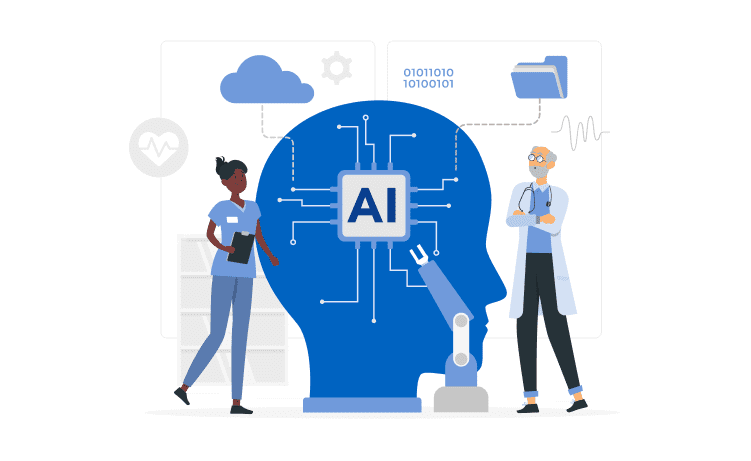
Top 5 Cases for Using AI in the Healthcare Industry



In the ever-evolving landscape of modern medicine, artificial intelligence (AI) has emerged as a transformative force, making significant strides and revolutionizing various medical specialties. With its integration into healthcare, AI has become a formidable ally, empowering medical professionals and enhancing patient outcomes in unprecedented ways.
One of the most remarkable impacts of AI in the medical field is its role in improving diagnostic accuracy. AI-powered algorithms can analyze vast amounts of patient data, including medical records, imaging scans, and genetic information, with incredible speed and precision. This capability allows AI systems to identify patterns and anomalies that might be challenging for human clinicians to detect, leading to earlier and more accurate diagnoses.
As a result, patients can receive timely interventions and personalized treatment plans, ultimately leading to better health outcomes.
Moreover, AI’s ability to assist in treatment decisions is reshaping the way medical professionals approach patient care. Through machine learning, AI algorithms can analyze data from thousands of clinical trials, research papers, and treatment outcomes to suggest the most effective and evidence-based treatment options for specific medical conditions.
Glorium Technologies, a leading healthcare software development company, is at the forefront of driving innovation and integrating artificial intelligence into the medical field. With their expertise and dedication, Glorium has been instrumental in creating cutting-edge AI-powered systems that are transforming healthcare practices and patient outcomes.
Let’s explore some of the top AI use cases in healthcare that are shaping the future of the industry.
Content
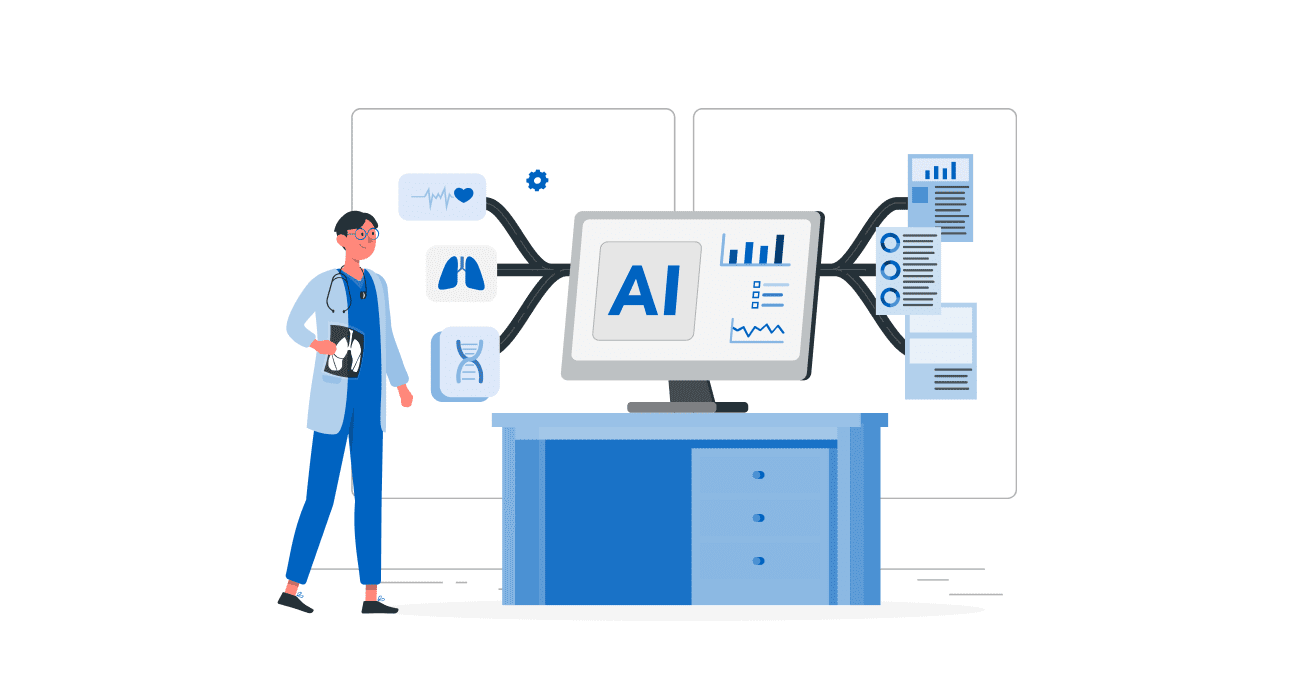
Medical examinations generate vast amounts of information, including graphical data from MRI images, ultrasound results, cardiograms, and CT scan findings. Analyzing and categorizing these images is a time-consuming and labor-intensive task for medical professionals. However, the integration of AI technologies is revolutionizing this process, optimizing the analysis of visual information.
With AI-powered systems, medical professionals can enjoy the benefits of an automated system for recording medical documents, streamlining the administrative aspects of their work. By automating this time-consuming task, they can redirect their focus to crucial factors in severe cases, where timely and accurate diagnosis is essential for patient outcomes.
Moreover, AI assists in making more accurate diagnoses by analyzing large volumes of data at high speed and comparing it with other studies of the same patient. The algorithms detect patterns and establish implicit relationships, enabling medical professionals to quickly pinpoint essential information.

After receiving a medical image, diagnosticians analyze it to reveal any abnormalities or signs of diseases. With the advent of machine learning and AI-based systems, medical graphics are no longer solely recognized but thoroughly analyzed for features and deviations. These AI systems excel at identifying even small neoplasms that may go unnoticed by the human eye, providing valuable information about the characteristics of these deviations from the norm.
For achieving more accurate diagnoses, it is beneficial for patients to have multiple images taken at different times. This allows the neural network to analyze the dynamics of the disease and track its progression over time.
The AI system’s advantage lies in its continuous learning capability, allowing it to improve results with each subsequent analysis. As a result, the computer’s diagnostic accuracy has been shown to reach less than 3% error, surpassing human performance.
Some doctors use IBM Watson neural network software to improve the diagnosis of rare childhood illnesses. The AI system aids them in achieving more accurate diagnoses by searching for pertinent information in databases containing clinical records and medical journals. All this valuable knowledge is securely stored in the Watson Health Cloud, ensuring easy access and facilitating the application of collective medical expertise.
Israel’s MedyMatch Technology has developed self-learning software to improve stroke diagnosis. To do this, MedyMatch compares the patient’s brain scan with a huge number of others that are in its database.
AI programs are not only limited to medical professionals; patients can also benefit from them. For instance, 23andMe software enables individuals to analyze their genetic code and receive valuable information about their ancestry, including details about their grandparents.
Additionally, the software can determine a person’s predisposition to certain diseases based on their genetic data. Armed with this knowledge, patients can make informed decisions to adjust their lifestyles and take preventative measures.

The shortage of medical professionals worldwide has been an ongoing issue, even pre-dating the COVID-19 pandemic. According to the World Health Organization, an additional 20 million top and middle managers will be needed to provide medical services to everyone on the planet by 2030. However, the situation is expected to worsen in the coming years due to increasing global population, demographic aging, and changing disease patterns.
To address these challenges, integrating artificial intelligence (AI) and medical knowledge bases is crucial. AI can automate tasks like issuing statements, filling out medical records, and answering basic patient questions, freeing up physicians’ time. Additionally, AI can digitize and structure vast amounts of medical data for quick and accurate access.
By automating routine tasks, doctors can focus on difficult cases, diagnose serious diseases, and develop optimal treatment plans. AI can also provide comprehensive patient information online, including family medical history, aiding in early disease detection.
AI can also assist in the administrative aspects of medical institutions, streamlining processes like claims processing and financial management.

Telemedicine, driven by AI, has emerged as a significant trend in the healthcare industry in 2023. By enabling remote consultations, it has expanded access to medical services for patients, especially in remote settlements and sparsely populated villages where medical assistance is crucial.
Through telemedicine applications, general practitioners can offer real-time recommendations for non-life-threatening diseases, enhancing healthcare accessibility for a broader range of patients. Many prominent companies are actively working on telemedicine software that utilizes artificial intelligence to capture and recognize symptoms, leading to preliminary diagnoses.
Some remote healthcare applications have integrated AI with speech processing, allowing patients to ask questions naturally, just like in a regular conversation during a doctor’s appointment. This approach ensures that patients receive prompt and qualified consultations.
The convenience of these applications is that individuals do not need to rely solely on the Internet to determine their ailments based on symptoms. Instead, they can access high-quality advice from virtual medical specialists. Furthermore, virtual nurses facilitate the process by scheduling offline appointments with doctors.
Virtual nurses are already operational in clinics across America, providing advice, recommendations, and essential information to patients. Computer assistants adeptly inquire about patients’ health and recognize symptoms, enabling them to offer optimal and effective treatment suggestions based on the gathered data.
Additionally, these virtual nurses educate patients on the correct administration of medications, further enhancing patient care. Remarkably, statistics reveal that 75% of patients prefer to interact with a virtual nurse over a human counterpart.
The incorporation of AI has revolutionized telemedicine, significantly augmenting its convenience and efficiency. Utilizing machine learning, remote diagnosis becomes feasible, and medical research can be efficiently collected and analyzed alongside patient data. The ease of online consultations has substantially reduced medical costs, making healthcare more accessible and affordable.
Learn more about AI consulting services.
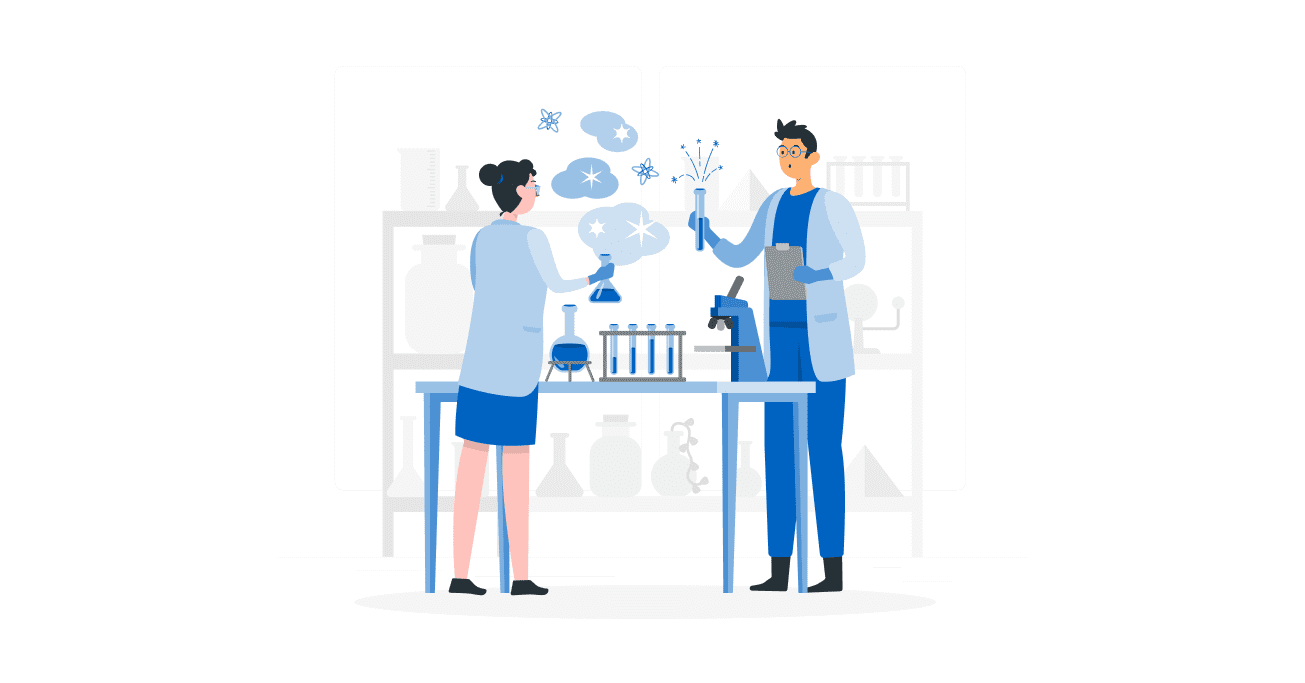
Startups focusing on drug development and vaccine research have become crucial, particularly during the Covid-19 pandemic and the emergence of new virus strains. These processes are traditionally time-consuming and expensive, but AI technology has significantly accelerated progress.
The integration of AI in healthcare offers hope for finding cures for currently incurable diseases such as Creutzfeldt-Jakob disease, human rabies, and progeria. By efficiently processing vast datasets, neural networks are identifying new applications for existing drugs, making it a cost-effective approach for drug development companies compared to creating entirely new drugs.
Moreover, AI-powered predictions have helped pharmaceutical companies determine the effectiveness of drugs in development, leading to significant cost reductions in the overall development process.
While AI-powered products offer promising advantages, some challenges hinder their widespread adoption. The high cost and public distrust of machines pose obstacles. Additionally, limited funds in many countries hinder the implementation of AI in healthcare.
To overcome these barriers and create optimal software, focus on developing simpler and more affordable AI systems. By making medicine more accessible, it becomes easier to convince patients of the benefits of these new software products. High-quality marketing and positive reviews can further instill confidence in patients.
Andrii DavydovFull-stack developer, Glorium Technologies

AI’s significance in the healthcare industry lies in its ability to enhance diagnostic accuracy, improve access to doctors, and organize medical data effectively through healthcare software development.
The integration of AI in the healthcare industry adds significant value by revolutionizing various aspects of medical practice:
AI-powered systems can analyze vast amounts of patient data, including medical history, test results, and imaging scans. This data-driven approach improves diagnostic accuracy, leading to early detection of diseases and more effective treatment plans.
AI-driven telemedicine and virtual health platforms enable patients to consult with healthcare professionals remotely, enhancing access to medical expertise, especially in underserved or remote areas. This increases convenience and reduces the burden on healthcare facilities.
Healthcare software development using AI allows for efficient and secure management of medical records, enabling quick access to critical patient information by authorized personnel. This streamlined approach enhances patient care and reduces administrative burdens.
There are lots of AI use cases in healthcare. From identifying potential drug candidates to predicting patient outcomes, AI-driven solutions are enhancing medical practices, saving lives, and improving patient outcomes.
The AI market in medicine will experience rapid growth. Embracing AI is crucial, as it represents the future of healthcare, already making substantial impacts today.
Artificial intelligence (AI) is transforming the healthcare industry, offering numerous benefits to medical professionals and patients alike. Glorium Technologies, a leading healthcare software development company, has been at the forefront of integrating AI into medical practices. Let’s explore the top five use cases of AI in healthcare:
AI’s integration in healthcare offers immense potential in improving diagnostic accuracy, streamlining medical practices, and finding innovative solutions to complex medical challenges. It represents the future of healthcare, revolutionizing medical practices and ultimately saving lives.
Glorium Technologies is a tech consulting and engineering company that specializes in crafting AI-powered solutions and applications. With a proven track record of extensive experience in the technology industry, our team of dedicated developers is fully equipped to create cutting-edge AI and Machine Learning solutions tailored to your specific needs.
From conceptualization to deployment, we offer comprehensive end-to-end solutions, ensuring that your AI-powered application meets the highest standards of performance, security, and user experience.
Whether you require AI-driven data analytics, natural language processing, computer vision, or any other AI application, Glorium can effectively assist you in harnessing the full potential of AI technology to enhance your business and achieve your objectives.
Glorium Technologies collaborated with Astarte Medical, a precision nutrition company based in the US, to build a forecasting and tracking web application for infants’ treatment plans. The project involved creating a comprehensive and proprietary dataset that integrated feeding protocols, microbiome profiles, and clinical information.
Our developers skillfully synchronized this dataset with the web application, enabling it to generate actionable suggestions through an AI-powered decision tree. When infant parameters are logged into the app, it measures Protocol compliance, which aids in tracking and optimizing their nutrition. The decision tree utilizes AI algorithms and draws insights from past cases to suggest personalized diet plans for each infant.
With this innovative web application, Astarte Medical can now offer precise and data-driven treatment plans for infants, improving their nutrition and overall health. The collaboration between Glorium Technologies and Astarte Medical resulted in a successful and impactful solution for the healthcare industry.
AI is being used in diagnosing diseases across various medical specialties. Some examples include:
AI is enhancing patient care in various ways:
AI can predict health risks by analyzing patient data, such as electronic health records, lifestyle factors, and genetic information. Predictive analytics can identify individuals at high risk of developing specific conditions, enabling healthcare providers to implement preventive measures and intervene early to improve patient outcomes.
AI enhances medical imaging by:
The impact of AI on the healthcare industry includes:
AI plays a critical role in precision medicine by analyzing patient data to create tailored treatment plans based on individual characteristics. This approach ensures that patients receive treatments that are most likely to be effective and have fewer side effects.
AI assists healthcare decision making by providing evidence-based recommendations and predictions based on patient data. It aids healthcare professionals in choosing the most appropriate treatment plans and interventions.
AI-driven patient monitoring includes:
AI improves healthcare system efficiency by automating administrative tasks, optimizing resource allocation, reducing diagnostic delays, and facilitating remote patient care.
The integration of AI in healthcare offers numerous benefits, but it also comes with potential downsides and risks. One significant concern is data privacy and security. AI systems rely on vast amounts of sensitive patient data, and any breaches or unauthorized access could lead to privacy violations and compromise patient confidentiality.
Another risk is the presence of biases in AI algorithms, which can result in disparities in healthcare delivery, particularly affecting marginalized or underrepresented patient groups.
Additionally, the lack of human oversight in AI-driven decision-making processes may lead to errors or inappropriate treatment recommendations. Moreover, the regulatory landscape surrounding AI in healthcare is complex and evolving, raising challenges related to certification, validation, and accountability.

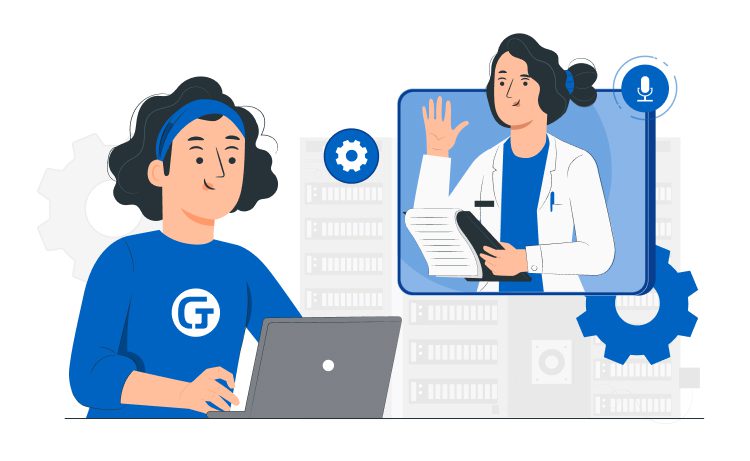
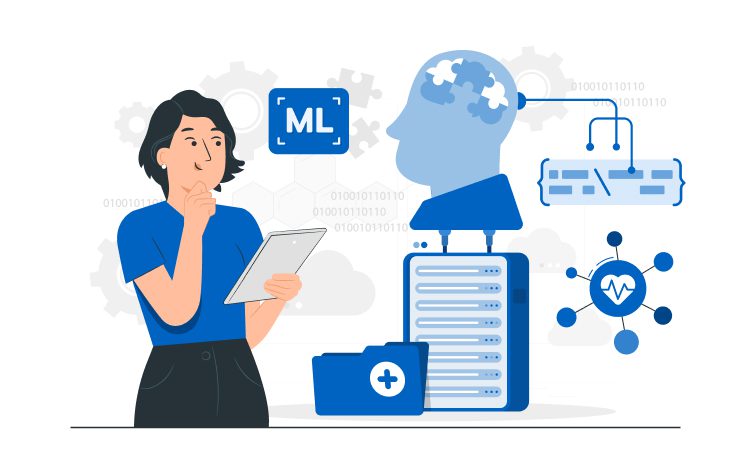
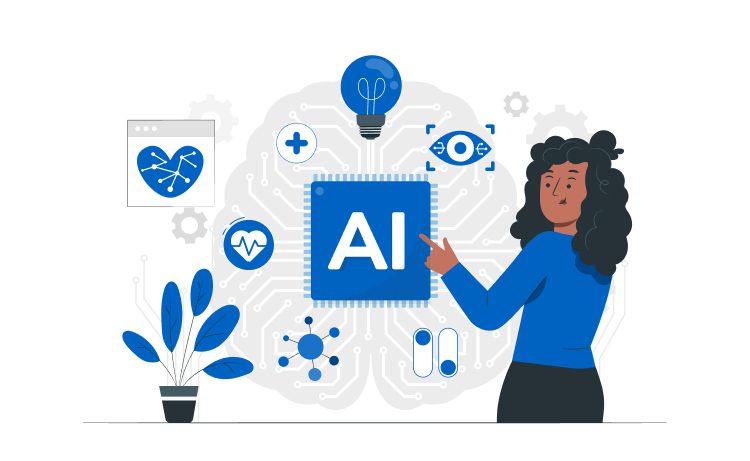
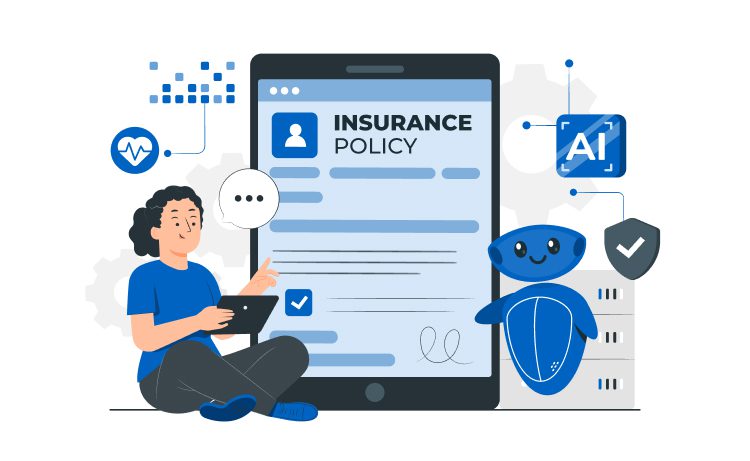
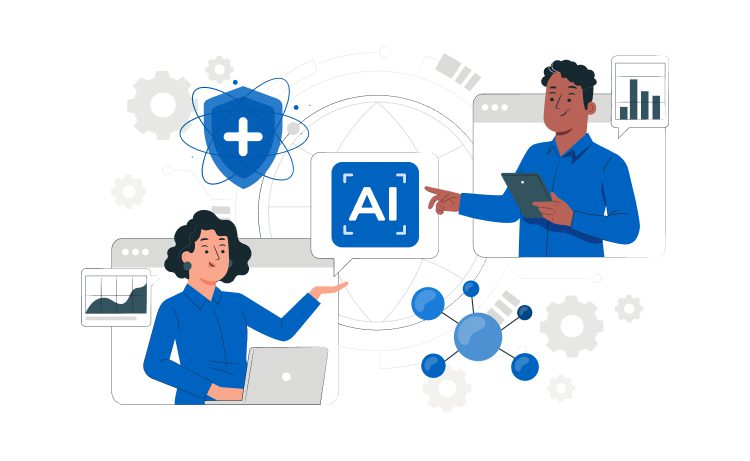
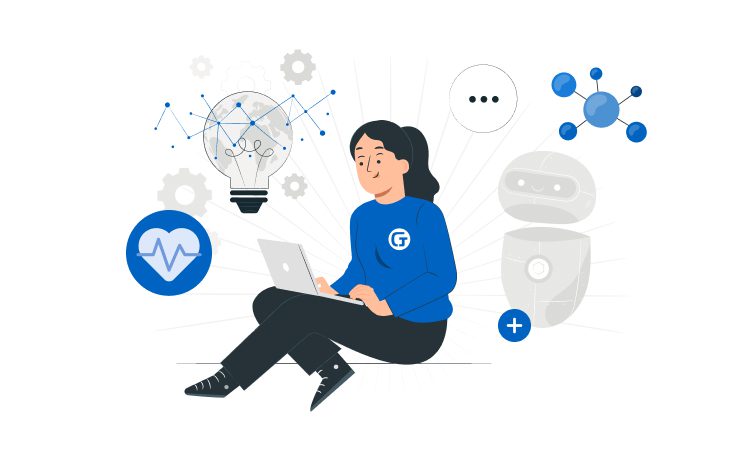

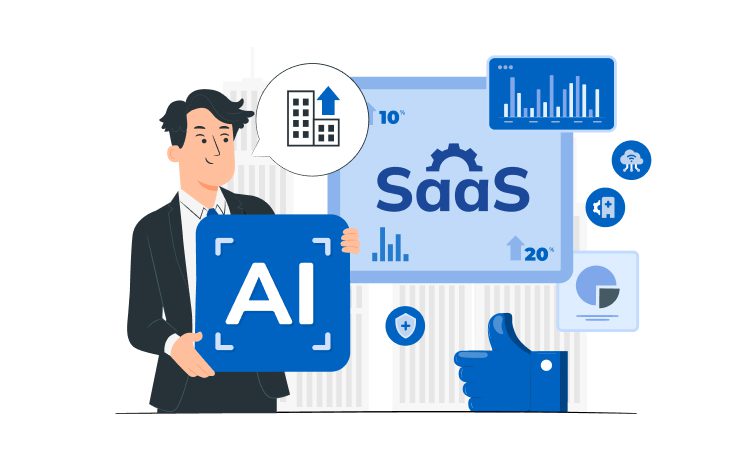
| Cookie | Duration | Description |
|---|---|---|
| cookielawinfo-checkbox-analytics | 11 months | This cookie is set by GDPR Cookie Consent plugin. The cookie is used to store the user consent for the cookies in the category "Analytics". |
| cookielawinfo-checkbox-functional | 11 months | The cookie is set by GDPR cookie consent to record the user consent for the cookies in the category "Functional". |
| cookielawinfo-checkbox-necessary | 11 months | This cookie is set by GDPR Cookie Consent plugin. The cookies is used to store the user consent for the cookies in the category "Necessary". |
| cookielawinfo-checkbox-others | 11 months | This cookie is set by GDPR Cookie Consent plugin. The cookie is used to store the user consent for the cookies in the category "Other. |
| cookielawinfo-checkbox-performance | 11 months | This cookie is set by GDPR Cookie Consent plugin. The cookie is used to store the user consent for the cookies in the category "Performance". |
| viewed_cookie_policy | 11 months | The cookie is set by the GDPR Cookie Consent plugin and is used to store whether or not user has consented to the use of cookies. It does not store any personal data. |